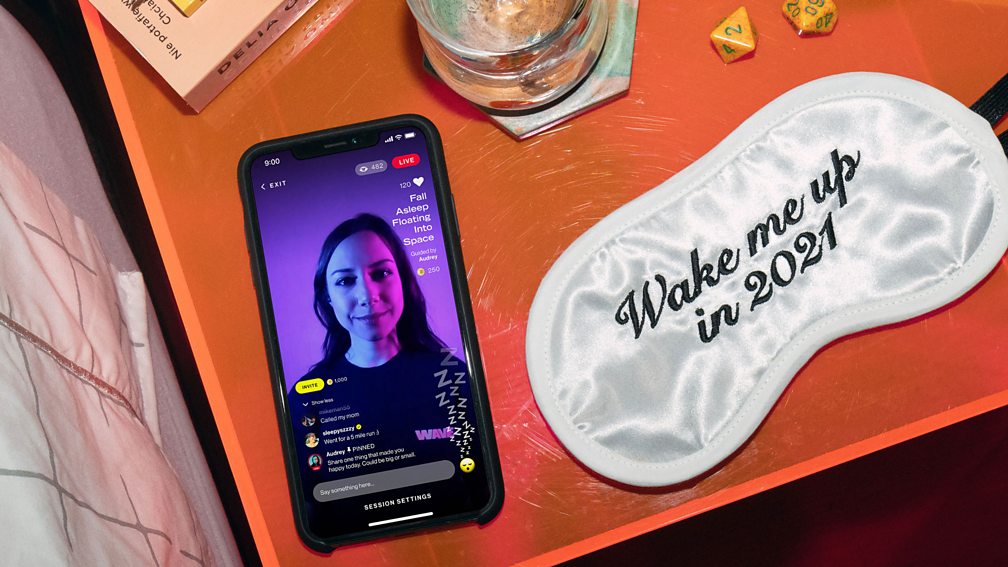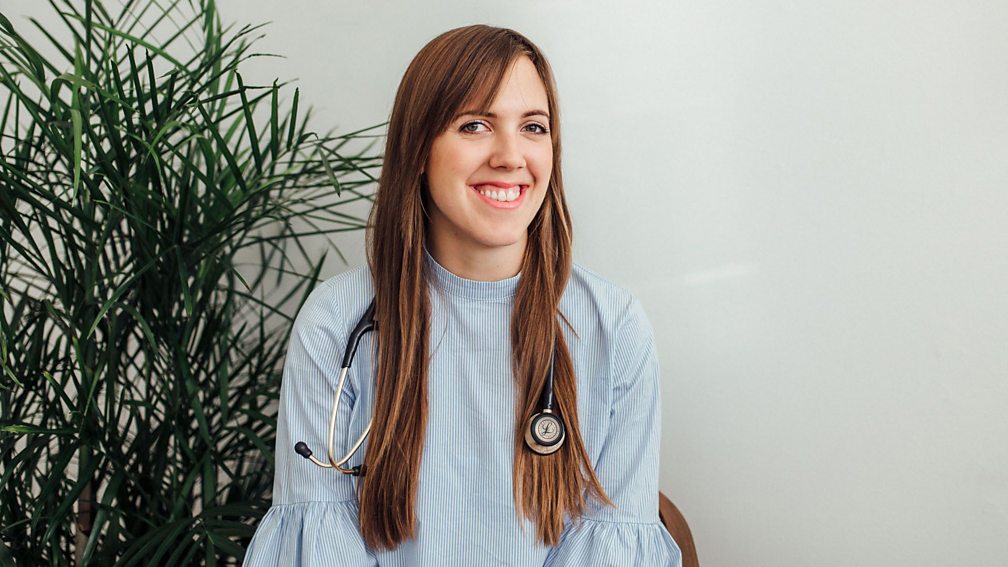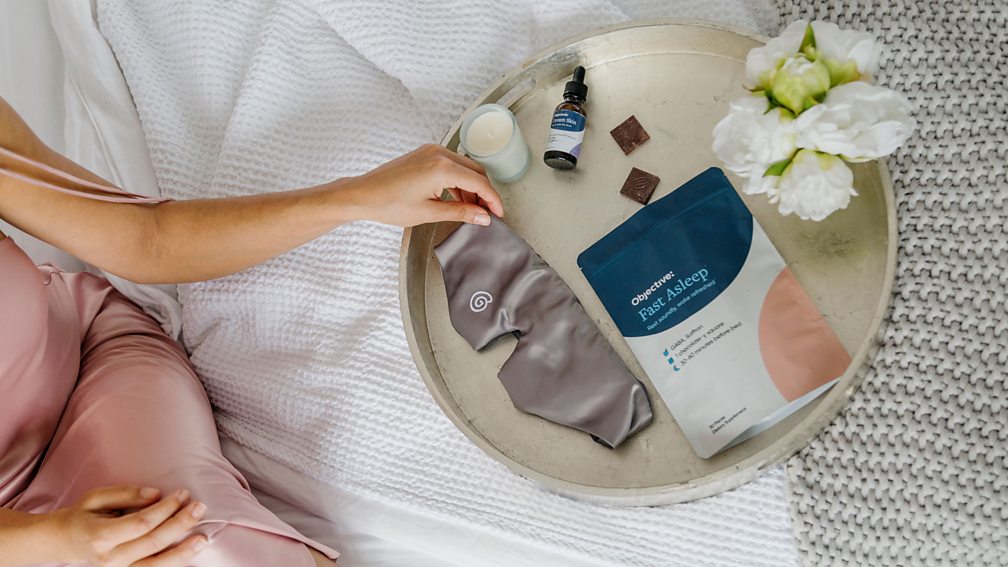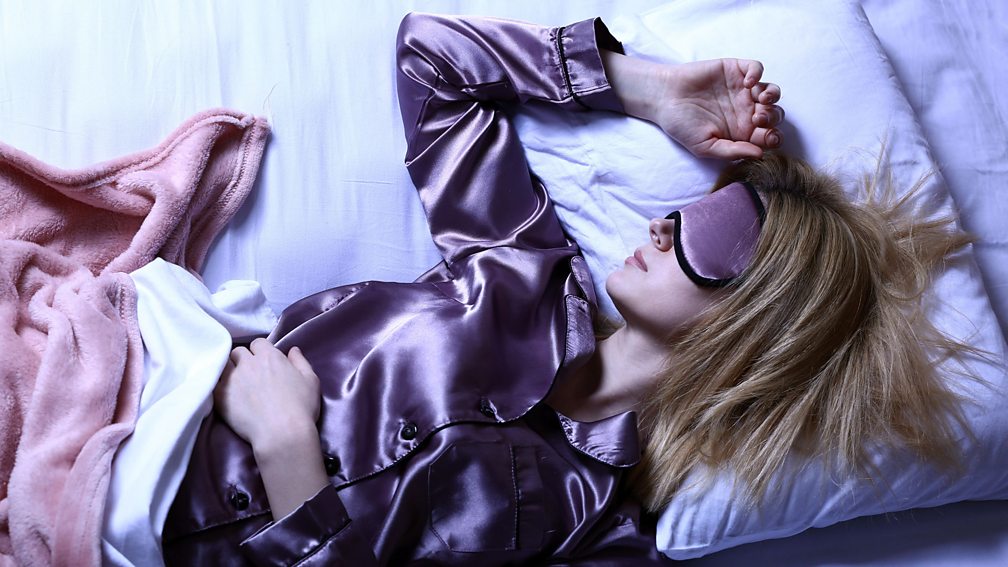With a good night’s rest seemingly more elusive than ever, products that promise better sleep are an increasingly big business. Can they help us finally get some rest?
On recent nights, I have fallen asleep in a rainforest, in a magic bubble and on a catamaran at sea. I haven’t left my bedroom, though; these were all imaginary journeys led by sleep guides on Wave, a meditation app that re-launched in January as a “sleep experience company”.
The New York City-based start-up aims to “redefine adult bedtime” with live sleep sessions that users can book as if they were boutique fitness classes. “When we started dabbling in more sleep stuff, we found that the demand for sleep content, especially [since] the pandemic started, is at an all-time high,” says co-founder Brad Warsh.
Every night beginning at 2100 New York time, Wave’s guides host live sessions on the half-hour, starting with breathing and mindfulness exercises before lulling listeners to sleep with meandering stories about white-sand beaches and outer space. There’s background music, too, which co-founder Mason Levey says is designed to mimic the low-frequency brainwaves observed in deep sleep, thus encouraging relaxation. At the end of the 40-minute session, the app automatically puts you in a “sleep room”, where it plays your chosen soundscape (say, crashing waves or pink noise) on a loop. And if you miss a live stream or are in the wrong time zone, past sessions are saved in an ever-growing library.

Wave, which will be priced at $10 (£7) after mid-March, is just one of the many companies on a quest to sell a better night’s sleep. Today, the wellness-minded consumer can buy products claiming to enhance every aspect of their shut-eye routine: weighted blankets and sleep masks, essential oil blends and porcelain diffusers, relaxation drinks and sunrise lamps, high-tech mattresses and cooling comforters. There are even sleep retreats across the world promising “better days through better sleep”, and sleep spas whose check-in experience includes a pillow menu offering varying levels of firmness.
On Instagram, influencers share images of bedside tables artfully arranged with CBD tinctures and calming pillow sprays. E-commerce sites devoted to sleep products entice shoppers with serene branding and invitations to “sleep well” and “become your best self”. Online publications about all things sleep have sprung up, too, offering voyeuristic peeks into the bedtime rituals of cool, creative types (The Sleepful) or nightly sleep mantras and links to recommended reading (The Snoozeletter). In its 2021 trend report, Pinterest declared “sleep care is the new self-care”, citing surging interest in terms including “sleep yoga”, “night affirmations sleep” and “silk sleepwear”.
With all the stress of the last year – Covid-19, social isolation, racial trauma, political unrest and myriad other concerns – it’s no surprise people are paying more attention to their resting hours. Along with exercise and nutrition, sleep is the third pillar of health, and the pandemic has made many of us more cognisant of our bodies’ vulnerabilities. But how much is buying fancy new bedding or lavender-scented lotion really helping these concerns? And how much are we just shopping our way around the real issues?
Approach with caution
Nastasia Irons, a naturopathic doctor in Toronto, says sleep problems have been a consistent concern among her patients since quarantine began last March. She attributes this in part to the sudden change in lifestyle that forced many people to become far more sedentary. “There’s a lot of people working in their bedrooms now,” she says, “so this spot that should be a really restful, plain space that’s meant for sleep, it’s turned into an office.” With no spatial divide between work life and home life, work has, for many, begun to encroach on nights and weekends.
But it’s not just those with insomnia and other sleep disorders who are stressed about the amount of shut-eye they’re getting these days, either. In its 2020 Global Sleep Survey, researchers for health-technology company Philips found that less than half of the 13,000-plus adults surveyed said they were satisfied with their sleep. And while several studies conducted in March and April 2020 indicated that people were sleeping more during the pandemic than they were prior to its onset, studies also found that their sleep quality had suffered. The extra minutes of rest people gained by eliminating their commutes and night-time socialising were, it seemed, not enough to negate the disruptive effects of forces such as stress, grief and lack of exercise.
Outside her typical treatments – herbs, exercise and nutritional changes – Irons says there are a few currently trendy products that are, at least, backed by some scientific research. One is lavender essential oil, which has been shown to have a calming effect when smelt (though she says she would recommend spraying a small amount on a pillow rather than putting it in a diffuser, since essential oils should not be inhaled for long periods of time). Another is weighted blankets, which may help alleviate anxiety by triggering a physiological response similar to the one we experience when we get a hug.

However, she’s cautious about most of the products on the market today – in part because their target audience is so vulnerable. “When you can’t sleep, it’s really hard on your body the next day, and after a few days of low sleep, I think people start to panic,” she says. When you reach that point of desperation, “you’re really prone to buying anything that says it’ll help… you can get really easily taken advantage of”.
Your problem to solve?
There is plenty of evidence that sleep deprivation is a social issue – one exacerbated by poverty, racism, lack of access to childcare and healthcare, gruelling low-wage jobs and corporate mandates at big tech companies to keep people awake and engaged with their screens as long as possible.
And yet most media about sleep places the blame on individuals for habits like bringing their phones to bed, watching television, not going to sleep at the same time every night or eating a meal too close to bedtime – which puts the burden on the individual to change their behaviours and strive for better habits, too.
Doing so is an expensive undertaking: according to a Frost & Sullivan research report commissioned by the mattress company Casper, the global sleep economy in 2019 was worth $432bn (£312bn), a figure encompassing everything from mattresses ($81bn) to pillows ($15bn) to tracking devices ($15bn) to “ambience optimisation” products such as white noise machines and smart lamps ($9bn). It’s expected to reach $585bn by 2024.
There’s a reason people are spending so much in pursuit of better sleep: in many cases, they’re finding that these products really help – at least in the short term. Online, you’ll find glowing reviews for humidifiers, cooling mattress pads and books of bedtime stories for grown-ups. With sleep in the zeitgeist, there are also opportunities to hear about other people’s products and routines, potentially encouraging aspirational sleep purchases. (“Could I look that well-rested if I invested in that same set of pillows?”)
What works for one person, though, doesn’t necessarily work for the next, Irons cautions. Plus, she says, treating the symptoms – in this case, poor sleep – doesn’t necessarily address the underlying cause, which could be related to diet or mental health.

And some are sceptical that we really need all this stuff at all. “Humans have slept perfectly well for the last million years without any robots or lotions and potions,” says Neil Stanley, a UK-based independent sleep expert, and author of How to Sleep Well: The Science of Sleeping Smarter, Living Better and Being Productive. “So, it seems to be mind-boggling that we now need this industry to do something which is the most natural thing that we can do.”
However, the same could be said about nutrition or exercise – and as Mike Grillo, CEO and co-founder of the sleep-centric company Gravity Products points out, that hasn’t slowed down the consumer fervour around the latter industry. “People don’t necessarily balk at spending $1,100 on a stationary bike in their house, or going to $40 fitness classes,” he says. “And I think you’re now starting to see that same type of tolerance come to the sleep economy as well.” (Among other products, Gravity’s signature weighted blanket, which it launched on Kickstarter in 2017, retails for $189 [£135].)
However, as Stanley sees it, our cultural obsession with sleep – which includes the quest to buy ourselves a better night’s rest – is making the issue more complicated than it needs to be. “You need three things for sleep,” he says. “You need a bedroom conducive to sleep – dark, quiet, cool, comfortable – you need a relaxed body and you need a quiet mind. That’s it… These are things people can do as of tonight, and it doesn’t cost a single penny to do any of them.”
Still, even with this in mind, perhaps it doesn’t quite matter that the path to a good night’s sleep could be more natural than we’re making it. With so many people tossing and turning every night – and with the activities that’ll enable us to regularise our schedules still off the table – it’s hard to argue against anything that helps even one person find a little bit of rest.
Credit: Source link




